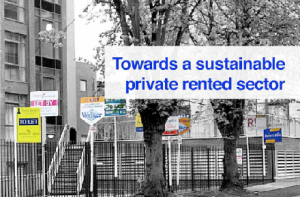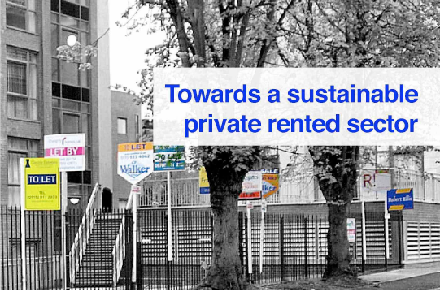New research published by LSE London indicates that, if the private rental market is to provide an attractive alternative to home ownership in the UK, a full range of tenancy agreements must be available.
 |
| [relatedPosts title=”Related Posts”] |
|
|
Towards a sustainable private rented sector compares the UK private rental market with those in 15 other industrialised nations. It found that security of tenure is a key factor in countries, such as Germany, where private renting is seen as a practical choice, even for middle-income families.
Kath Scanlon, Research Fellow at LSE London, explains: “Households are unlikely to choose a privately-rented house or flat as a long-term family home or a place to live in retirement if they are faced with the uncertainty of a short-term lease and aware they could be asked to leave at short notice, at any time.”
Assured tenancies which allow tenants to stay in a property indefinitely do exist in the UK but are very little used. This is because buy-to-let mortgage lenders often require that properties be let on short-hold (6 month) tenancies, and many landlords want the flexibility to sell a property with vacant possession if house prices go up. There is also a lack of demand from tenants who may not be aware that these types of tenancies exist.
Private renting now accounts for 17% of homes in England and this proportion has been rising rapidly. The difficulties facing those who want to buy but cannot because of the current financial crisis, a shortage of social housing and demand from mobile households are causing this rise in private renting.
The research also highlights that encouraging single ownership of apartment blocks could help ensure that investment in private renting was more attractive to landlords in the private rental market. A range of investors would be attracted to these types of properties and increase the supply of housing for rent. Single ownership of blocks would have the additional benefit of bringing some economies of scale to the management of properties, particularly the maintenance of common areas and the replacement of capital equipment.
The research also points out that the tax incentives for private landlords in the UK are less generous than in many other countries. Most UK landlords are individuals or smaller companies. Allowing them to offset rental losses against other types of income, as is common elsewhere, might help expand the supply of good quality rented housing.
Further Information
‘Towards a sustainable private rented sector, The lessons from other countries’ can be found here.





